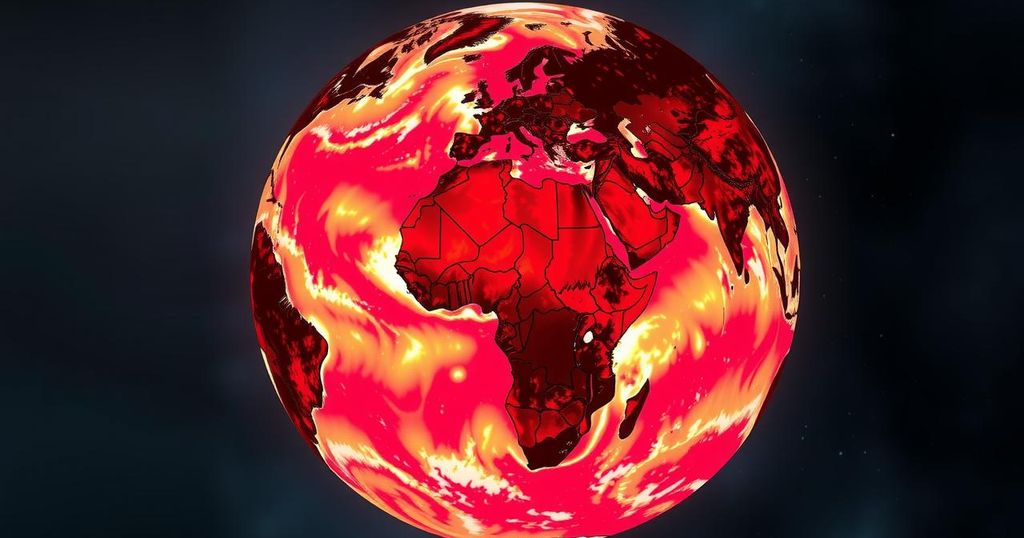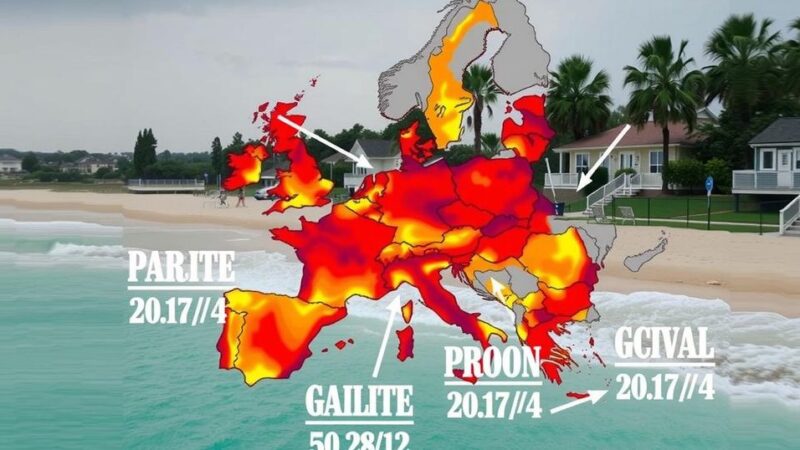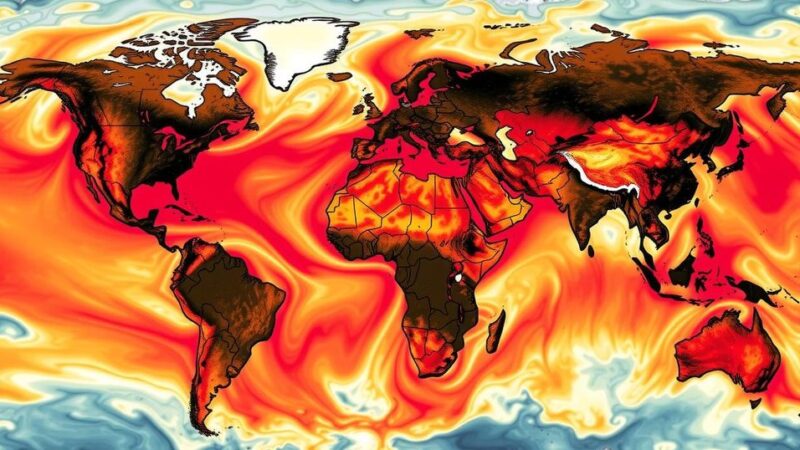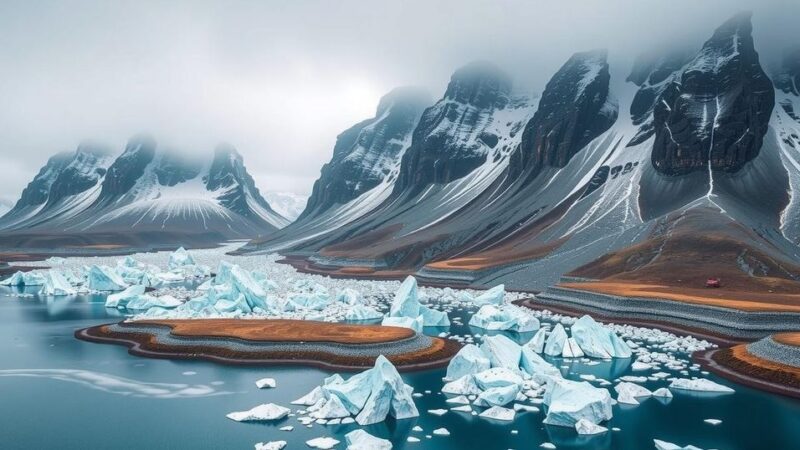2024 has been recorded as the hottest year ever, with temperatures 2.32°F above the 20th-century average and Antarctic sea ice at its second-lowest extent. The data from NOAA highlights significant regional temperature increases, while global ocean heat content reached unprecedented levels. These findings emphasize the ongoing impacts of climate change.
According to NOAA’s National Centers for Environmental Information (NCEI), 2024 has officially become the hottest year on record. This follows unprecedented levels of global heat and a notable reduction in Antarctic sea ice coverage, which came in at its second-lowest extent recorded. Key statistics reveal that the average land and ocean surface temperature in 2024 was 2.32 degrees Fahrenheit (1.29 degrees Celsius) above the 20th-century average, surpassing the previous record set in 2023 by 0.18 degrees Fahrenheit (0.10 degrees Celsius). Regions such as Africa, Europe, North America, Oceania, and South America experienced their hottest years, while Asian and Arctic regions encountered their second-hottest years since records began.
The topic of climate change and its manifestations is of global importance, illustrating significant alterations in weather patterns and temperatures over the years. The data compiled by NOAA and corroborated by other scientific organizations highlights the alarming trend of rising temperatures as well as the diminishing sea ice levels, particularly in polar regions. Understanding these statistics can provide insight into the broader implications of climate change on natural ecosystems and global weather phenomena, pointing towards urgent environmental challenges.
In summary, 2024 has set a record as the warmest year globally, marked by significant rises in average temperatures and continued reductions in Antarctic sea ice extent. The findings underscore a troubling trajectory in climate patterns, emphasizing the urgency of addressing climate-related issues. It is critical for stakeholders to recognize these patterns to engage in informed discussions and actions regarding environmental policy and climate change initiatives.
Original Source: www.noaa.gov







